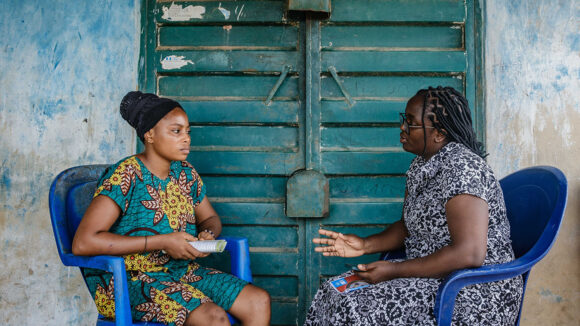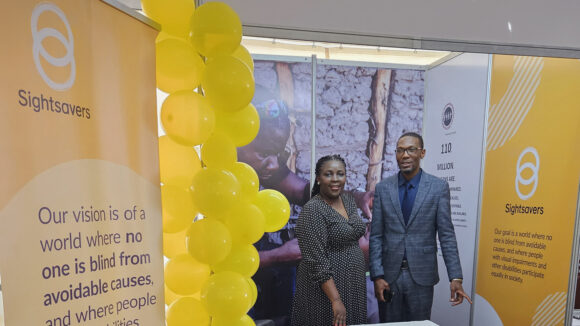Research sleuths: how we investigate blips in our NTD elimination projects
NOTE: This article is more than five years old, but may still be relevant. For more recent content, see our news and blogs page.
How do we react when outcomes aren’t what we expect? The mystery of Cameroon’s Western Region sheds light on the process.
Elimination is the name of the game in neglected tropical diseases (NTDs). So when we don’t produce the expected outcomes to keep us on that elimination path we have to send in the sleuths to get to the bottom of it. Their mission: to find out what is actually happening and put informed plans into action.
Take the current situation in Cameroon. Two health districts in the Western Region have received over 15 years of annual ivermectin distribution for onchocerciasis (also known as river blindness), yet there remains abnormally high prevalence and ongoing transmission.
Prevalence should be less than 0.1 per cent in children under 10 after that many years of treatment distribution, but instead it’s stubbornly and consistently high. In one village, it remains at 61 per cent. These high rates are dramatically different to the other 18 districts in the region, which show much lower prevalence after almost two decades of distribution. Something is up.
We know business as usual will not get us the results we need in these two districts – but what will? Research to get closer to the answer was done in two phases. First: a population-based survey and qualitative work to better understand mass drug administration (MDA) coverage. Second: a black fly breeding site and epidemiological assessments to define the high transmission area.
The population-based survey exposed issues that we need to tackle, many of which have to do with systematic non-compliance. In other words, why do some people always miss or refuse to take the treatment each year? Reasons like fear of side effects (especially for women, as rumours about fertility still persist), differences within ethnic groups and the fact that these farming areas have seasonal migration were key findings.
The breeding site assessments and epidemiological evaluations have helped to define a 12km zone of high transmission, so we need to hit this area with all our might. We may attack the adult worm by using a new treatment, or potentially change the frequency of ivermectin distribution. We’ll try new behaviour change tactics to improve compliance. And we can explore vector control; we now know exactly where the black fly breeding sites are so they can be better targeted.
In May the team will sit with Cameroon’s Ministry of Health to look at a new approach. Can we bring these two districts down to normal prevalence, and over time eliminate onchocerciasis? We certainly hope so, but only if we look to try something new. The research team is helping us face serious challenges head on and come up with smart strategies to solve them. By doing that, they’re a vital piece of the elimination puzzle.
These findings were presented at the 2015 American Society of Tropical Medicine and Hygiene Conference. It was our first ever session at this prestigious scientific forum and paved the way for many good things to come.
Who worked on this at Sightsavers?
From NTDs and Research: Laura Senyonjo and Didier Bakajika
From the Cameroon Country Office: Joseph Oye and Serge Akongo
By Sarah Bartlett, Sightsavers mHealth Advisor for NTDs
The research team is helping us face serious challenges head on
Want to read more about our work?
Neglected tropical diseases
Why community collaboration is important in our research
Our research on female genital schistosomiasis has highlighted the need to establish a safe and supportive environment for participants when studying sensitive topics.

The key to inclusive education is engaging organisations of people with disabilities
Collaborating with organisations of people with disabilities (OPDs) on our inclusive education projects has earned the Sightsavers-led Inclusive Futures consortium a Zero Project Award in 2024.

Six takeaways from the International Conference for Public Health in Africa
Sightsavers’ Hortance Manjo shares insights from the event in Zambia, which highlighted eye health for the first time.
